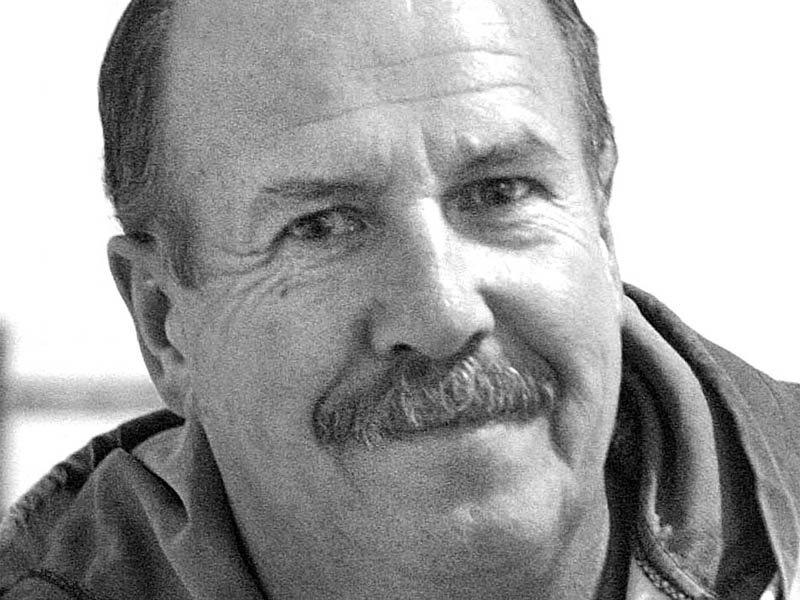Columnists
Bronko Nagurski Part 2

Another highly respected American football observer, Grantland Rice, also had good things to say about “The Bronk.” When asked to select an all-time allstar team he said, “That’s easy. I’d pick 11 Bronko Nagurskis. I honestly don’t think it would be a contest. The 11 Nagurskis would be a mop-up. It would be something close to murder and massacre. For the Bronk could star at any position on the field-with 228 pounds of authority to back him up.”
In 1937, he hung up his high top cleats, threw his leather helmet on the shelf, and became a professional wrestler. It was a decision he would later regret. “I never liked wrestling.” Life in the wrestling ring was not as glamorous as he had hoped, but it was a way to make a living.
“The promoters told me I could make a million in no time, but it didn’t happen. I wrestled guys like Jim Londos and Ed “Strangler” Lewis. At that time, there wasn’t a lot of money in it. It was a sport where you worked every night and travelled a lot. I had a family at the time, and I didn’t want to be away from home.” He wrestled professionally for more than a dozen years.
He was a three-time Heavyweight Champion, defeating Dean Dutton in 1937, Lou Thesz in 1939, and Ray Steele in 1941.
In 1943, the Bears asked Nagurski to come out of retirement for one final season. At the age of 35, he scored the game-winning touchdown of the NFL final game against the Washington Redskins. He ended his career averaging five yards per carry. Green Bay Packer Hall of Famer Clarke Hinkle said: “My greatest thrill in football was the day Bronko announced his retirement. There’s no question he was the most bruising fullback football has ever seen. I know, because I still have the bruises!” He returned to International Falls when he retired from wrestling, and opened a gas station. All of his children helped at the station, including his youngest son Kevin. Kevin was in Fort Frances during the Dudley Hewitt Cup in 2003, the trophy for the Central Canadian Tier II hockey championship. Kevin’s son “Critter” played for the Borderland Thunder, one of four teams vying for the title.
Kevin told me his daughter Erin also wears hockey skates, and played intercollegiate hockey for the University of Minnesota at Duluth.
I spoke at length with Kevin about growing up in the shadow of a legend. Kevin told me his dad’s happiest moments were spent on Lake Kabetogama, at his cabin. He loved to fish, particularly on Rainy Lake. “The cabin is south of International Falls, only reachable by boat. We still hunt goose and duck there. When we were growing up, Dad was our camp cook. He loved to fix our meals, listening to University of Minnesota football games on the radio.”
Bronko also liked the cold weather. International Falls has earned the reputation as being a cold place in the winter. Bronko’s interpretation? “We don’t have summer, just a season in the middle of the year when the sledding is poor!”
Bronko’s football sweater hangs in the Bronko Nagurski Museum in International Falls, also home of the Koochichin Museum. The curator of the museum, Edgar Oerichbauer, passed on a couple of tidbits about “The Bronk.” “When you gassed up at Bronk’s gas station, you were left with a choice: either you had to return there for your next fill up, or you had to buy a specialized pipe wrench to remove your gas cap.” Nagurski’s incredible hand strength came from years on the farm, and from his size 22 fingers.
Oerichbauer also told me that Bronko’s daughter used his Bears’ sweater as a night shirt. His son Kevin added, “We all wore that shirt, especially when we played football in the yard.” It has been conservatively valued at $50,000.
Bronko Nagurski Junior enjoyed a stellar career in the Canadian Football League with the Hamilton Tiger Cats. He graduated from Notre Dame in 1959, where he had been a regular tackle for three years. In 1958 he played in the “East-West Shrine All-Star Game.” On the back of his Topps football card, he is listed at 6 feet, one inch, weighing 235 pounds, when he was 25 years old.
Bronko Jr. won the Grey Cup with the Cats in 1963 and 1965, and was an All-Star along with John Barrow, Don Sutherin, Angelo Mosca, and Hal Patterson. He also attained Al-Star status in 1964 and 1965.
Bronko Nagurski died on January 7, 1990, at the age of 81.
sportslices.blogspot.com

Comments (0)